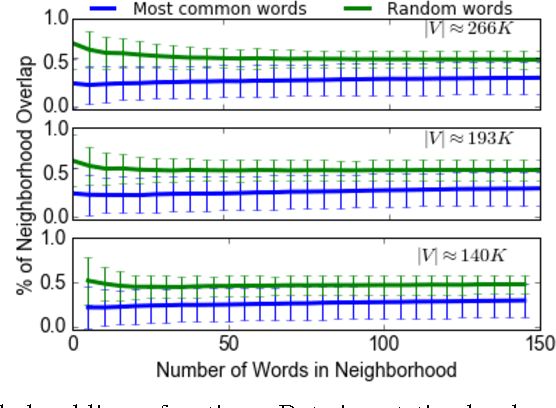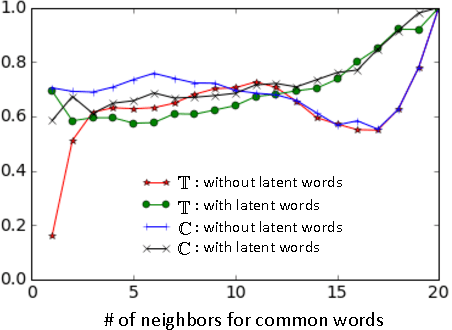Consistent Alignment of Word Embedding Models
Paper and Code
Feb 24, 2017

Word embedding models offer continuous vector representations that can capture rich contextual semantics based on their word co-occurrence patterns. While these word vectors can provide very effective features used in many NLP tasks such as clustering similar words and inferring learning relationships, many challenges and open research questions remain. In this paper, we propose a solution that aligns variations of the same model (or different models) in a joint low-dimensional latent space leveraging carefully generated synthetic data points. This generative process is inspired by the observation that a variety of linguistic relationships is captured by simple linear operations in embedded space. We demonstrate that our approach can lead to substantial improvements in recovering embeddings of local neighborhoods.
 Add to Chrome
Add to Chrome Add to Firefox
Add to Firefox Add to Edge
Add to Edge